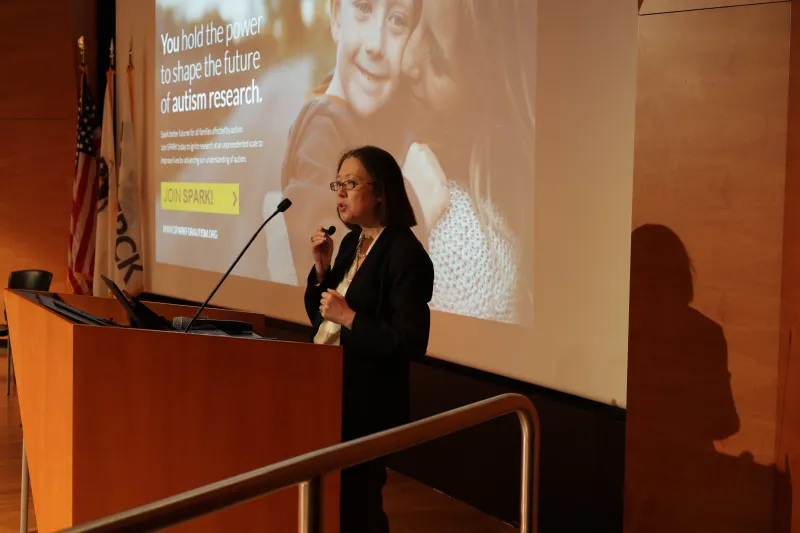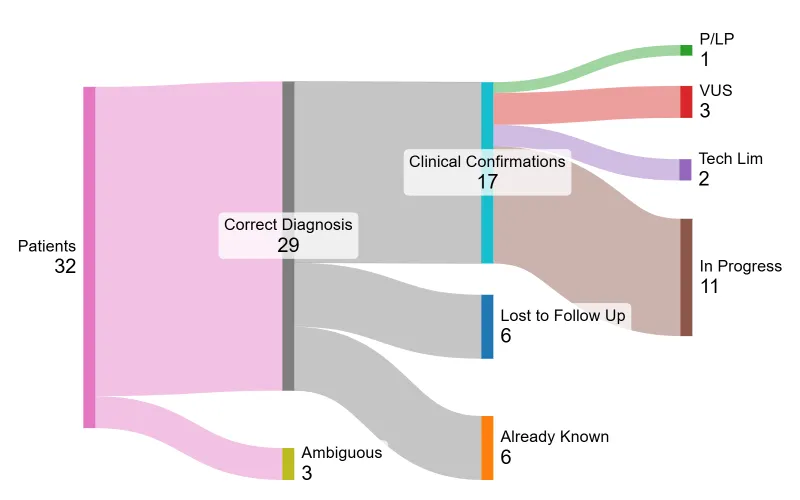The Deep Interpretation of Complex Clinical Cases program is led by Dr. Wendy Chung, Physician in Chief, Dr. Shira Rockowitz, Data Science Director, and Dr. Monica Wojcik, Medical Director, and supports reanalysis and reinterpretation of, or a “second look" at, clinical genetic testing when this genetic testing does not initially find a diagnosis.
When children have complex medical conditions, clinicians routinely order clinical genetic testing. About 30% of the time, this testing provides a genetic diagnosis to help better understand the cause, management, and potential treatment for a medical condition. For the other 70%, the search for answers continues.
Over time, new genes are linked to diseases as we learn more about genetics. As technologies advance, new analyses can help solve some of these cases using existing genetic data. Any patient for whom clinical genetic testing (whole exome sequencing or whole genome sequencing) is ordered through BCH will be automatically included in this clinical reanalysis program.
Findings from these reanalyses and reinterpretation are confirmed by GeneDx before being reported. The CRDC Data Science team uses advanced tools to help identify genetic variants and supports these efforts.

